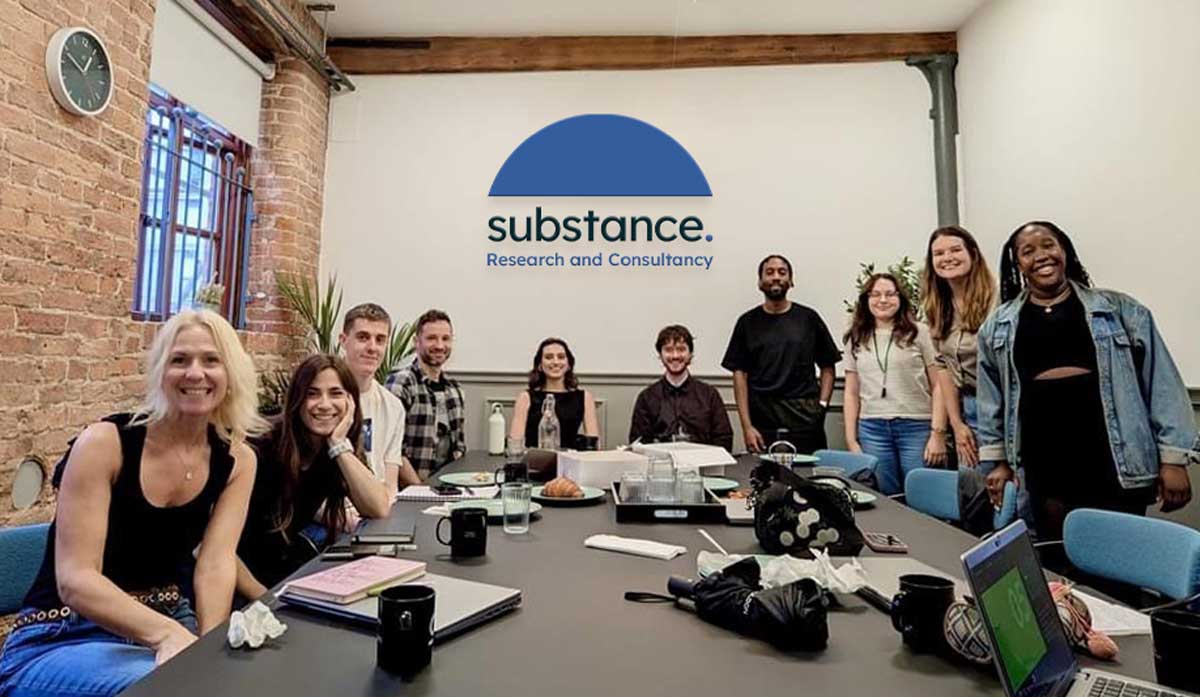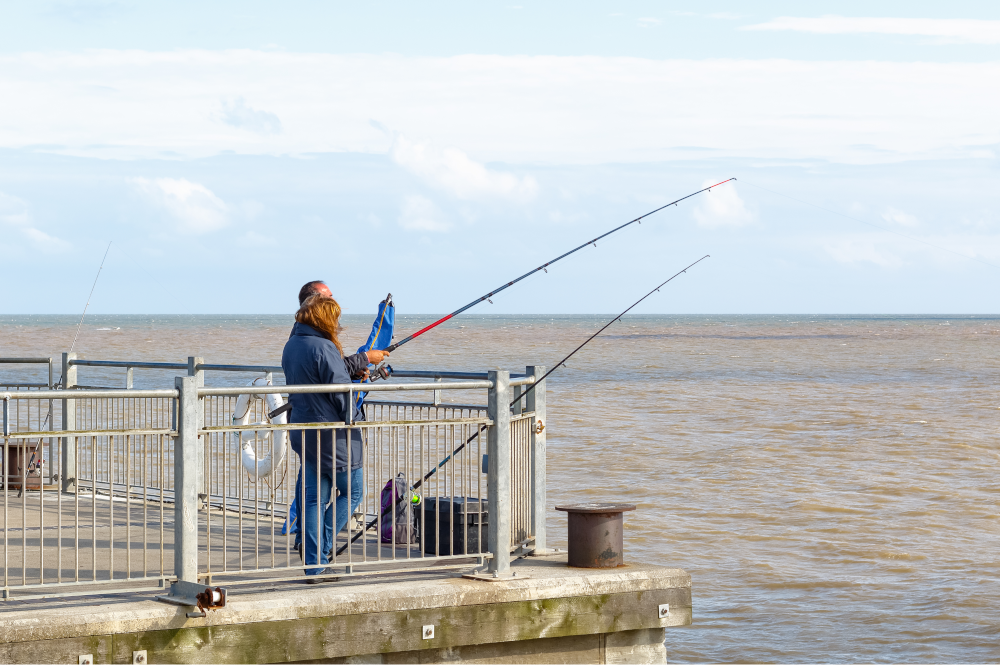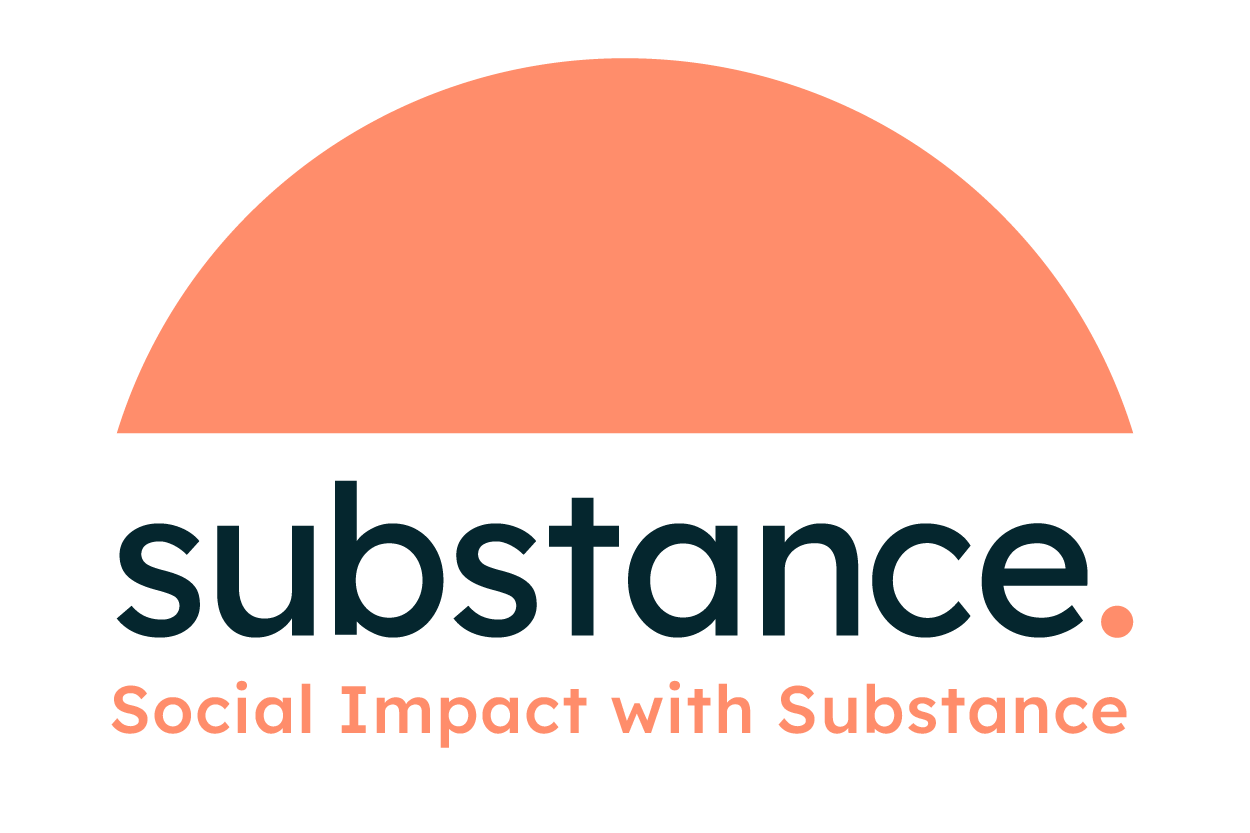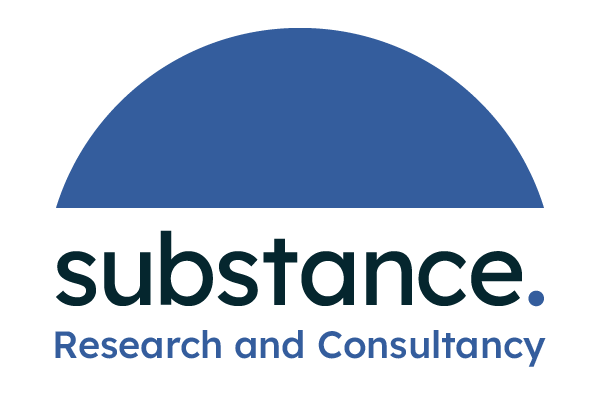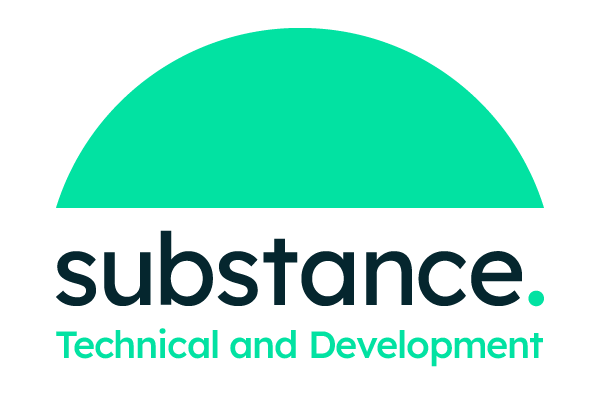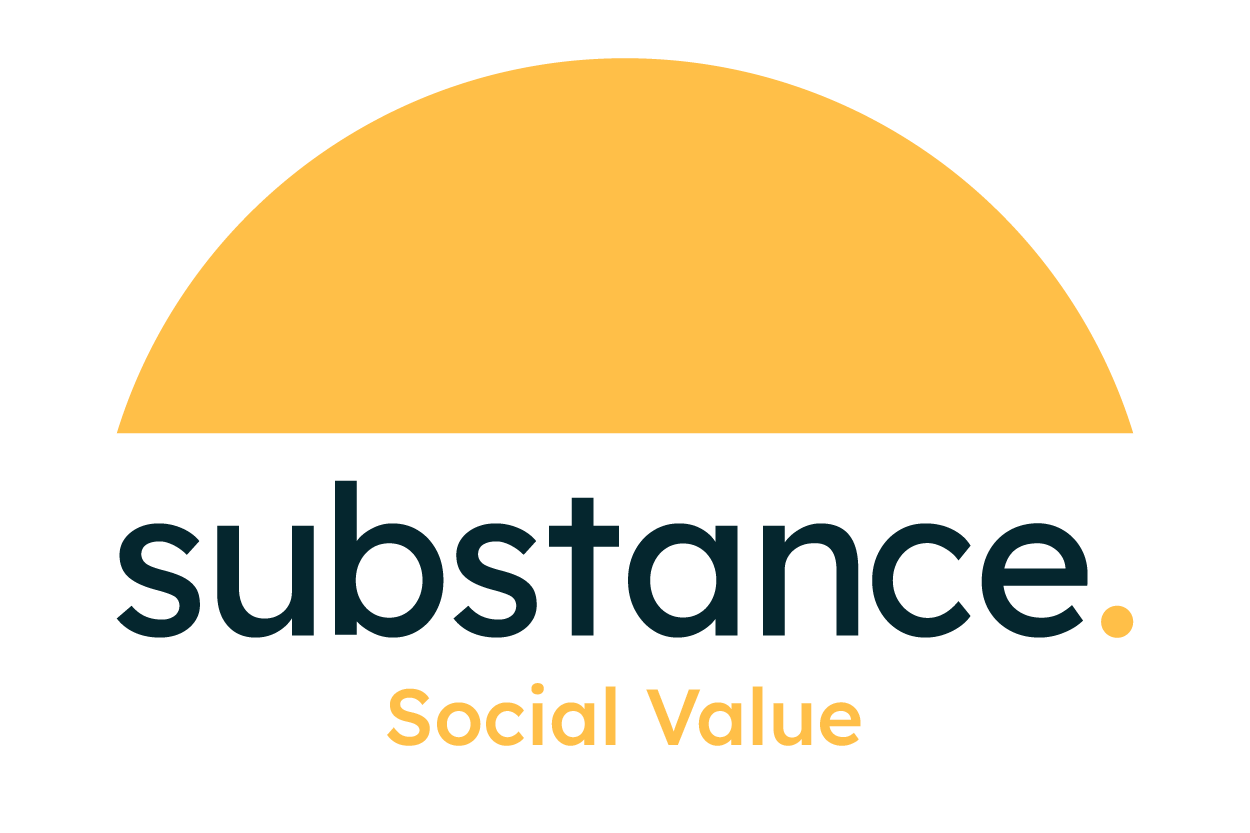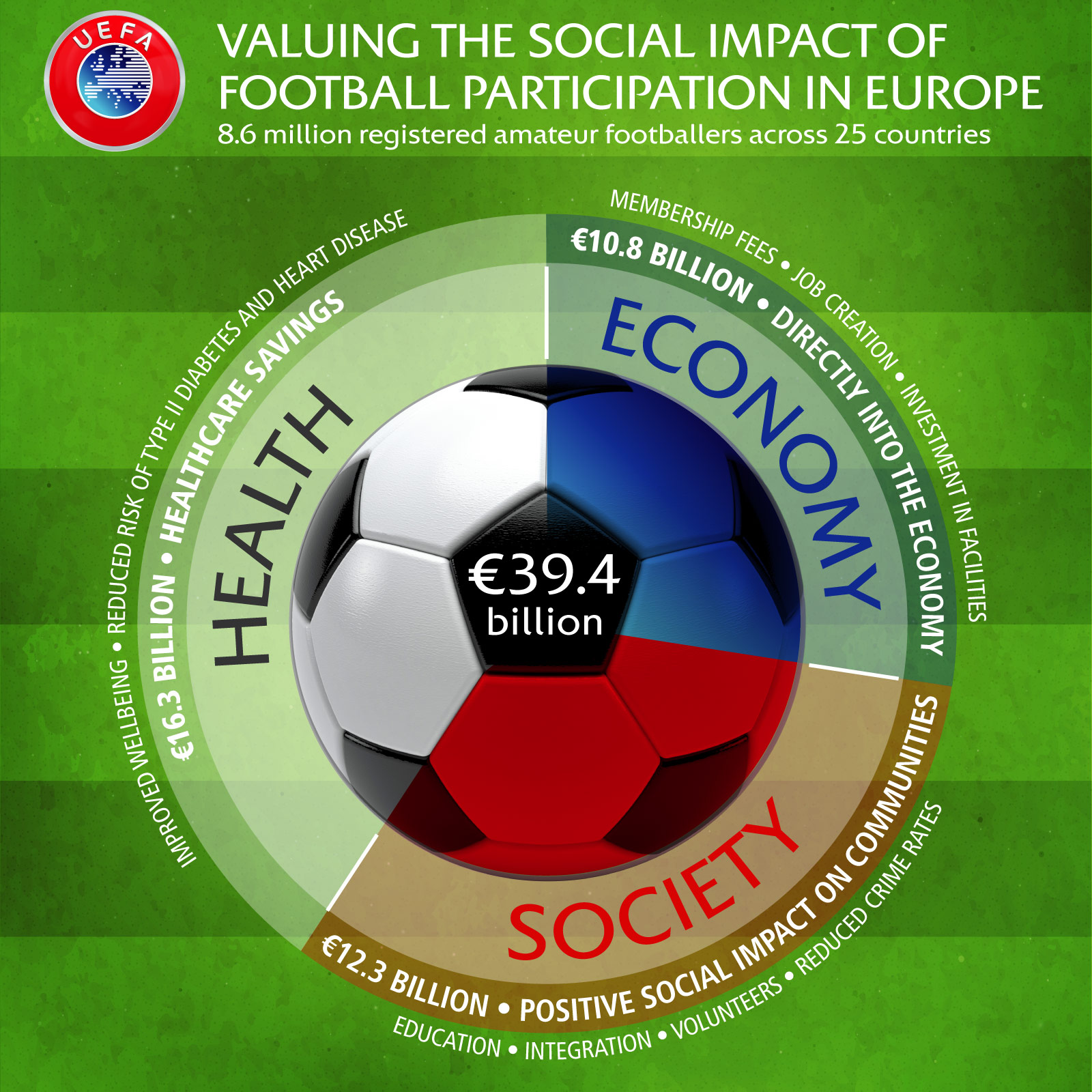
Football’s wider economic, health and social impact measured through SROI modelling by Substance & UEFA GROW
Ever wondered what participation in grassroots football was worth to society? Since 2017, Substance has been working with the UEFA Grow team to develop a model which demonstrates how grassroots football participation benefits society and to express this in monetary terms. It has always been felt intuitively that mass football participation provides multiple positive impacts, but to secure further investment, tangible evidence was needed. In conjunction with a panel of experts and academics from across Europe, Substance and UEFA GROW have created and developed the Social Return on Investment model which shows the direct and indirect health, social and economic benefits for each registered football player.
The UEFA GROW SROI model has now been applied to more than 25 nations showing significant impact in each territory, with a total annual value of €39.4 billion. Last week, the DFB President Fritz Keller and UEFA First Vice President Karl-Erik Nilsson launched the results of the SROI study in Germany which have been applied at national, regional and club levels. The DFB results shows that amateur football in Germany has a value of €13.9 billion. This value includes:
- €6 bn health care savings because of reduced incidences of health problems such as cardiovascular disease, mental health problems, ageing conditions and certain cancers alongside improved subjective wellbeing
- €2.61 bn in social benefits such as involvement in volunteering, improved education and employment, and reduced criminal activity
- €73 bn direct contributions to the economy through infra-structure investment and spending by players.
Within Germany alone there are 1.5 million grassroots volunteers making contributions in 24,500 amateur clubs and the process of developing the SROI model has itself revealed further benefits that are as yet unvalued, highlighting a need for more research in the area of football volunteering. To remedy this, UEFA has funded further research to explore the wider personal, club and community benefits – and costs – of volunteering and to provide guidance on the best practice in volunteer development so that others can realise the benefits.
Substance is collaborating with Advisory Panel member Professor Pamela Wicker of Bielefeld University on this volunteering research project which is due to report in the first half of 2021.
More information on our work alongside the UEFA GROW team can be found by visiting:


